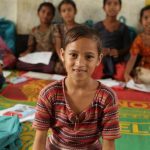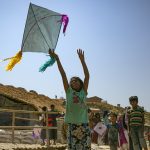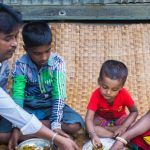Rohingya refugees are highly vulnerable to many challenges. IFPRI and Cornell researchers joined hands to examine the associations between receipt of an electronic food voucher (e-voucher) compared with food rations on the nutritional status of Rohingya children living in refugee camps in Bangladesh. The study found that, in a humanitarian assistance setting (i.e. Rohingya refugee […]
Dataset: Food Transfers & Nutrition in Rohingya Camps
Background Between August-October 2017, there was an influx of Rohingya refugees into Cox’s Bazar district near the southeastern tip of Bangladesh—more than doubling the population living in the area. There, they joined more than 200,000 Rohingya displaced over the previous 20 years. Currently, around 1 million Rohingya live in Bangladesh. IFPRI conducted a study, “Food […]
How can safety nets reduce violence against women in Bangladesh?
Direct cash transfers coupled with behaviour change communication (BCC) can reduce violence against women inflicted by their partners by more than a quarter, according to a study. The study said the reduction in violence was found six to 10 months after the intervention ended, providing the first evidence that such benefits can be sustained by […]
Can social protection tackle micronutrient deficiencies in Bangladesh?
IFPRI builds a stronger case for the power of cash transfers and high quality nutrition education to tackle Bangladesh's nutrition challenges.



